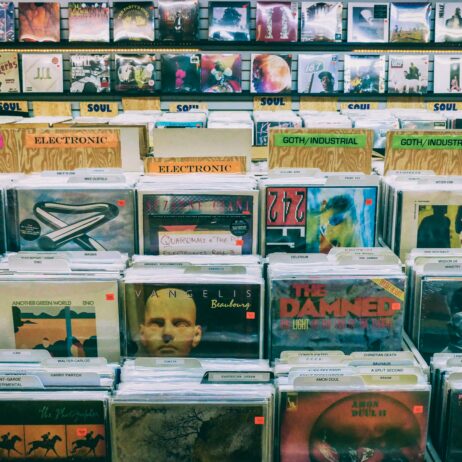The music app that changed everything

On 1 June 1999, two university students, Shawn Fanning and Sean Parker, developed an app that revolutionised the music industry.
Napster was the first peer-to-peer online application to be adopted by the general public, enabling easy sharing of mp3 music files. Anyone who installed Napster on their computer could share millions of music files for free.
Napster quickly became hugely popular. At its peak, the application is estimated to have had over 80 million registered users, an astonishing number in the early days of the Internet.
There was only one problem with this popularity: Napster was illegal and infringed copyright.
The music industry reacted quickly. In November 1999, the RIAA, representing the US record industry, sued Napster. Metallica drummer Lars Ulrich, for his part, sued hundreds of thousands of Metallica fans by delivering 13 boxes of papers to Napster’s office listing users who had illegally distributed the band’s music.
Eventually, the lawsuits brought down Napster. It was ordered to shut down its service in early 2001, and a year and a half later the company went bankrupt.
However, Napster’s impact on the entertainment industry was greater than its three years of operation. It taught consumers a whole new way to share music and other entertainment content.
Today’s legal digital download and streaming services, from Amazon Music to Apple Music and from Spotify to Deezer, are all Napster’s heirs. The company’s online distribution model also paved the way for video streaming services like Netflix.
Napster also left behind a legacy that is a little more shabby. It set the stage for a new kind of entrepreneurship, where you grow your own business so quickly and aggressively that the law has no time to react.
“Years later, Napster is still an example and inspiration in Silicon Valley,” journalist Josehp Menn said in a Los Angeles Times article in May. He has written a book about Napster called All the Rave: The Rise and Fall of Shawn Fanning’s Napster.
“Uber and Airbnb followed the same approach: blow up taxi and hotel regulations, and give people something they want. Then you grow it so big that you eventually get the politicians on your side. Napster gave birth to a whole wave of anti-hero entrepreneurs.”
Since the bankruptcy, the Napster brand has jumped from one company to another. Today, Napster is a small but paid music subscription service.




